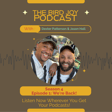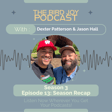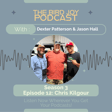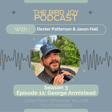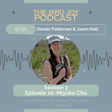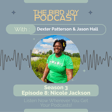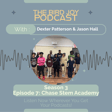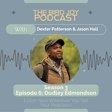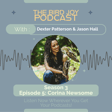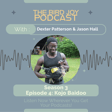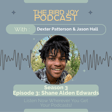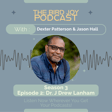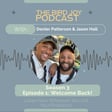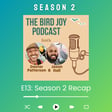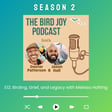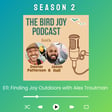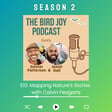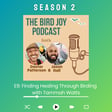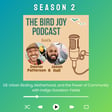
Birdwatching and Safety for Diverse Birders
Join Dexter and Jason in this jam-packed episode, where they emphasize the crucial role of planning in ensuring a safe and enjoyable birding trip. The homies delve into the basics of safety, including the essential steps to plan your visit to a birding area.
Are you aware of what you need to safely get there, bird, and safely get home to those folks who love you the most? This includes making sure you have things like food and water if you need it for a longer trip, accessible and safe parking or public transport; clothes are safe and comfortable for the conditions you will be in; sunscreen, gloves, hats, and other items to ensure your physical self is well taken care of. Additionally, the homies dive deep into safety in numbers and ensure that you let folks know where you are going. There are natural (large carnivores, dangerous plants, venomous reptiles) and human dangers (social or political groups that do not accept those different from them) in some areas, and we must ensure we are aware of those. There are several examples throughout history of folks being harmed in the outdoors simply due to who they are. Feel free to use technology (e.g., Find my iPhone or other similar apps) to share your location with others if you can.
In a separate episode, they covered birding ethics and inclusive birding. The homies return to some of those themes when it comes to ensuring we are aware of how we impact the safety of others on the trail. For example, how men… or bears… approach women on the trail, ensuring we are not overstepping bounds and only presenting safe and equitable spaces. There is also consideration given to how some of these points of safety may change depending on a disability that someone may be challenged with at any point and how we should consider those when going out in groups.
As heavy as this episode is with tips and advice, the homies keep it fun and uplifting at all times. As usual, there are many laughs along the way. There are some lesser talked about topics like common birding injuries and how to take care of yourself during your bird outing. In the end, they want you to be safe on the bird trail, no matter who you are.
Be sure to follow our podcast on Instagram at @thebirdjoypod and subscribe wherever you get your podcasts.
